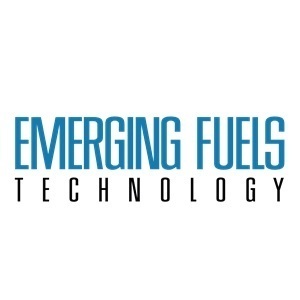Emerging Fuels Technology introduces Maxx Jet, Maxx Diesel

February 9, 2022
BY Emerging Fuels Technology
Emerging Fuels Technology, a technology company focused on methods for producing synthetic fuels from feedstocks such as natural gas, flared gas, biogas, biomass, municipal solid waste, CO2 and more, on Feb. 8 introduced its Maxx Jet and Maxx Diesel proprietary methods, which employ a unique catalyst system made for EFT by Haldor Topsoe. The process is ideally configured to pair with EFT’s Fischer Tropsch technology to provide a scalable, sustainable path for converting Fischer Tropsch syncrude into very high yields of high-quality jet fuel and diesel fuel products. Maxx Jet technology was recently used to make jet fuel from CO2 for the Air Force in partnership with Twelve.
The need for sustainable fuels - especially jet fuel - is immediate and apparent as global aviation produces 1.2 billion tons of CO2 emissions every year. With a commitment from those across the industry to make significant advancements toward widespread adoption of sustainable aviation fuel (SAF), EFT is well positioned to bring high yield, high quality jet fuel to market with its sustainable process.
Advertisement
Advertisement
“We are excited to offer these yield and quality improvements and very pleased to be working with Haldor Topsoe to manufacture our proprietary hydroprocessing catalysts,” said Kenneth Agee, president of EFT. “Our proven process can be a valuable resource to an industry in great need of alternative fuel sources.”
EFT’s Maxx Jet and Maxx Diesel combines novel equipment design and a tailored stacked bed catalyst system to achieve superior yields and product properties such as jet fuel with a freeze point below -55°C – a key property for high quality jet fuels. Improvements in diesel yields and properties are similar. EFT plans to use Maxx Jet and Maxx Diesel technology in its BioGTL and FlareBuster projects, and to license it in combination with its Fischer Tropsch technology system for renewable fuels projects around the world. The combined method provides a highly effective way to convert any source of synthesis gas from biomass, biogas or CO2 into the highest yield and quality of jet and diesel fuel products.
Advertisement
Advertisement
“As an organization committed to reducing carbon emissions, it’s a great opportunity to work with EFT and be an integral part of creating high-yield, high-quality fuels, which are in high demand,” said Henrik Rasmussen, managing director at Haldor Topsoe Inc.
Related Stories
Avfuel Corp., the leading independent supplier of aviation fuel and services, is expanding its sustainable aviation fuel (SAF) footprint with the addition of a new, strategic supply point in Denver, Colorado—the first of its kind in the region.
CVR Energy Inc. on July 30 reported its renewables segment achieved increased throughput during Q2 despite unplanned downtime but reported a net loss of $11 million. The company expects to retroactively claim the 45Z credit for volumes produced.
Total U.S. operable biofuels production capacity expanded in May, with gains for renewable diesel and a small decrease for ethanol, according to data released by the U.S. Energy Information Administration. Feedstock consumption was up.
SAF-producer XCF Global Inc. on July 28 announced it has signed an exclusive, non-binding indication of intent (IOI) with a renewable fuels infrastructure and feedstock solutions company based in the western U.S.
The abrupt closure announcement by Biox Corp. is the latest example of a failure to secure Canada's domestic energy supply, says Unifor. The Canadian energy union is advocating for simply regulatory changes that could help restart the facility.
Upcoming Events










